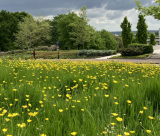
Race Equality in Practice: a case study in decolonising the curriculum
November 23rd, 2023
The term ‘decolonising the curriculum’ is often used and heard throughout the university, but what does it actually look like in practice?
A Guide for Critical Reflection and Action towards Decolonising the Curriculum was developed and introduced across the Faculty of Social Sciences in 2021/22.
The guide is designed to provoke individual and group reflection on current ways of being, knowing and doing in order to discover how these can be reconfigured towards a more just, equitable, diverse and inclusive institution.
The guide focuses on three dimensions: curriculum content, culture, and pedagogy.
A case study in using the guide: BA Education
Written and shared with us by Dr Jalpa Ruparelia, Assistant Professor in Education
“As part of our continuous work to review the curriculum, the BA Education team used the Guide to focus on the way we assess students on the programme.
Using some of the prompts in the Guide, we reflected on inherent biases and assumptions within our assessment design that may disadvantage some students. We agreed to review the way we assess students starting in the first year so that these ‘align more with values of connection and cooperation’.
We developed group tasks that were challenging but also scaffolded their learning so that they worked together and supported each other to become more confident in their own individual skills and abilities.
This has impacted the way we teach; students have more opportunities to work together on tasks and participate in debates, thus working to their individual strengths as they learn to share responsibilities
In one of our first year modules, students are introduced to sociological concepts that highlight social injustices in Education. We have made a concerted effort to source literature and readings from global south researchers and included references to music, art and history to highlight voices that are silenced and/or marginalised.
We focus on who has the power to share knowledge and whose knowledge is defined as ‘legitimate’ to trouble the notion of universally applicable knowledge.”
If you would like to share a case study yourself, please contact the EDI Co-ordinators Team.
Leave a Reply
Other

May is for wild flowers and hedgehogs
This year the university is once again leaving some of our green spaces to grow wild […]


